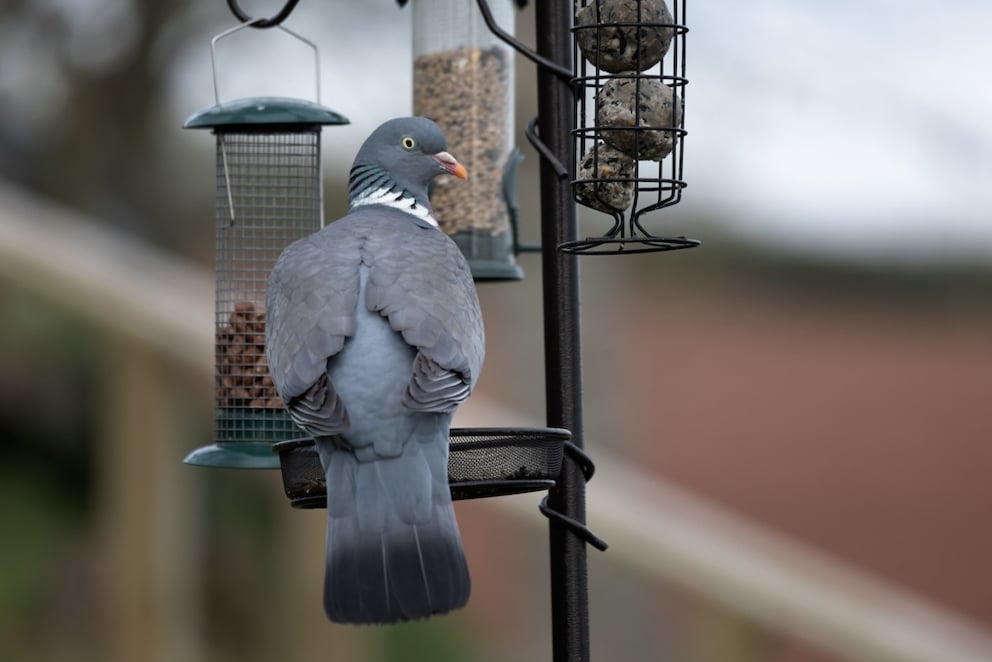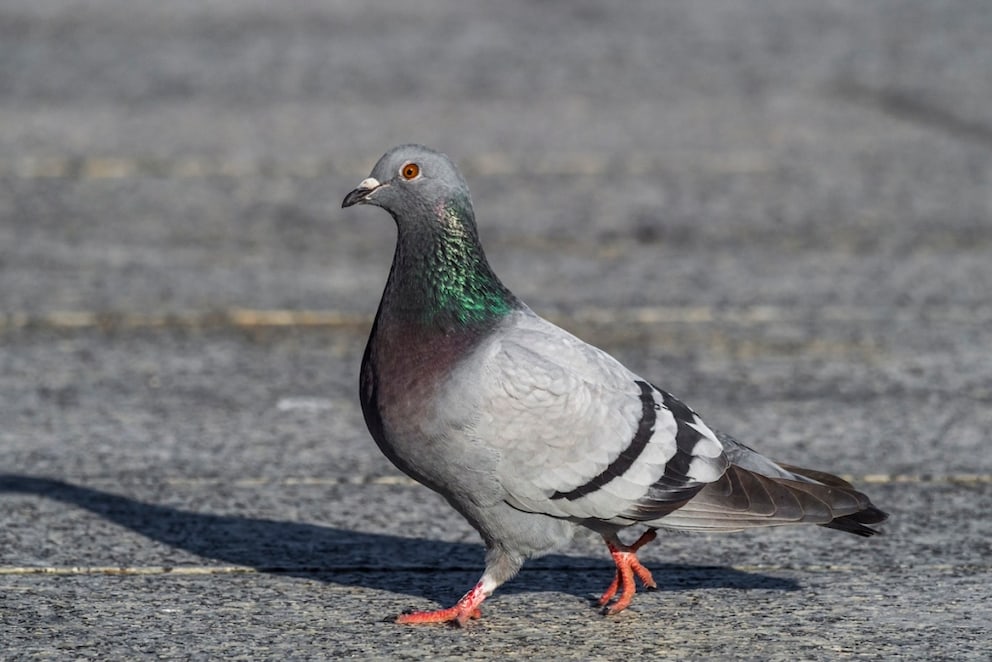May 12, 2025, 9:04 am | Read time: 5 minutes
Pigeons are generally not welcome guests on balconies. If they go so far as to build their nests between flower boxes or under outdoor furniture, it can be quite frustrating. In many cases, you are not allowed to remove the nests on your own. It’s best to take preventive measures to stop pigeons from nesting on the balcony in the first place.
According to Nabu, pigeons are particularly loyal animals. When street pigeons form a partnership, they stay together for life. Where pairs form, offspring are inevitable. Typically, pigeons breed from March to August. If autumn and winter are mild, the breeding season can last even longer. To lay their eggs and raise their young, pigeons build nests, often on balconies. However, they disturb most balcony owners with loud cooing and droppings that can contain pathogens. To prevent pigeon nests on the balcony, you can follow these tips.
Preventing Pigeon Nests on the Balcony
To avoid finding pigeon nests on the balcony, you must make it as uncomfortable as possible for the birds. This is not easy in the long run, as pigeons get used to noises, smells, and visual stimuli over time. Therefore, you should combine different deterrent methods and change them over time. The following can help keep pigeons off the balcony:
- Natural Enemies: Natural enemies like crows and falcons keep pigeons away from the balcony. It’s best to set up decoys of birds of prey. The location of the plastic bird should be changed occasionally.
- Movement and Light: Pigeons are skittish animals and find quick movements unsettling. Wind-blown ribbons, pinwheels, and light-reflecting objects like CDs and disco balls make the balcony uncomfortable for the birds.
- Noises: No one feels comfortable in a noisy place. Pigeons are no different. Clattering cans, wind chimes, or special devices that mimic bird-of-prey calls can drive the birds away.
- Smells: The right smells can drive away many animals. Pigeons, for example, do not like the smell of vinegar or cayenne pepper. Animal hair also acts as a deterrent and can prevent pigeon nests from forming on the balcony.
- Avoiding Niches: To provide no space for pigeon nests, you should avoid gaps, niches, and similar areas.
Preventive measures are especially important with pigeons. Once they have successfully raised their young in a location, they like to return.
What to Do if a Pigeon Nest is Built?
Sometimes deterrent methods come too late or no longer work. In this case, you should not act too quickly and simply remove the nest. Various pigeon species live in Germany, and the measures allowed depend on the species.
In general, however, all pigeons in Germany, both wild and city pigeons, are protected. Kölner Taubenhilfe e. V. informs that it is not allowed to simply remove the nest, eggs, or chicks or disturb them while brooding. Killing chicks is considered animal cruelty, which can be punished with up to three years in prison under the Animal Welfare Act.
Exception: If the breeding site is not safe for the animals, for example, because cats and dogs can reach the site or due to construction work, it is allowed to relocate the nest. The nest should be placed so that the parent birds can find it. An immediate danger to the nest, offspring, and parent birds does not justify disposing of the nest.

City Pigeons Nesting on the Balcony

If city pigeons are just beginning to explore the balcony and place the first twigs, you may remove them at this stage of nest building. At the same time, you should now focus on deterrent methods. If it is a nest with eggs, you may not simply remove it. However, with city pigeons, it is allowed to replace the eggs with plaster replicas. With disposable gloves and a flashlight, you can check the age of the eggs. If you see a dark mass in the egg, the embryo is already too developed and should not be replaced, according to the Kölner Taubenhilfe.
By swapping the eggs with replicas, you prevent chicks from hatching. However, the parent birds remain. Only after about three weeks do they give up and leave the breeding site. If you cannot replace the eggs, you should get used to the pigeon family on the balcony for the next few weeks. Only when the young birds become fledglings, meaning they leave the nest, may you remove the pigeon nest from the balcony. Since pigeons are not only loyal to their partners but also to their nesting sites, it is important to make the balcony uncomfortable afterward.

7 Tips to Keep Rats Out of Your Garden

6 Steps to Prepare your Garden for Spring

How to Effectively Prevent a Wasp Nest
Wild Pigeons Nesting on the Balcony—Now What?
If it is a wild pigeon species, the options for action are limited. These pigeon species are more strictly protected by the Animal Welfare Act. Thus, you may not damage the nest or disturb the birds while brooding. Removing and replacing eggs is also prohibited and can have legal consequences.

If you are unsure which pigeon species is on the balcony and what actions are possible, it is advisable to seek expert advice.

